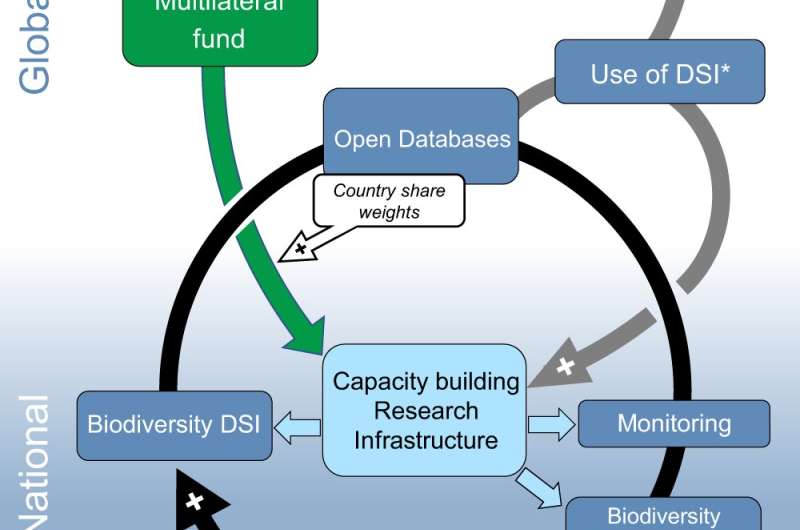Calls to share genetic data fairly and promote conservation

Scientists from 17 countries have published their thoughts on ongoing UN policy discussions around the sharing of digital sequence information to support conservation efforts.
Scientists urge for a sensible international policy solution for sharing genetic data, known as 'digital sequence information," to help support biodiversity conservation.
Members of the global scientific community—41 researchers from 17 countries—including those from the Wellcome Sanger Institute, have come together offering their thoughts on the policy discussions that are currently taking place under the United Nations (UN) Convention on Biological Diversity.
They have detailed their thoughts in a new paper, published today (23 February) in Nature Communications, where the researchers explain why a policy solution on digital sequence information (DSI) is urgently needed. They propose a mechanism that would support biodiversity conservation while also better sharing the benefits of DSI research.
There is widespread agreement that urgent international action is needed to stem the ongoing destruction of our planet's biodiversity. Parties to the UN Convention on Biological Diversity are currently negotiating the Post-2020 Global Biodiversity Framework, which will shape efforts to protect our planet for the coming decades.
However, disagreements have arisen regarding how to treat 'digital sequence information' (DSI), in the new framework. Scientists have a long and successful history of sharing DSI openly on the web. This culture of sharing is central to biodiversity research and has driven technological advances in fields as diverse as medicine, food security, and green energy production.
Online databases contain DSI for many hundreds of thousands of organisms, and grow in size each day. These widely-used resources support scientific reproducibility, transparency, and advancement. DSI sharing, for example, was crucial to the rapid development of SARS-CoV-2 tests and vaccines.
In this new publication, the authors, including those from the Wellcome Sanger Institute, suggest a policy mechanism that would create a positive feedback loop to incentivise countries to generate and share DSI on their biodiversity, while distributing benefits from its use equitably.
The authors argue that such a policy mechanism must be 'multilateral' to be successful, which means that nations around the world must cooperate and agree on common rules. The authors of this work also call on policymakers to engage with researchers in their countries who depend on access to DSI, so that any policy solution will not hinder crucial biodiversity research.
"Open access to digital sequence information accelerates research that is fundamental for tackling a range of global challenges, from the surveillance of pathogenic diseases to the conservation of biodiversity. Therefore, it is imperative that negotiators agree on a benefit-sharing mechanism for digital sequence information that protects open access and does not hinder scientific research. Crucially, the views and experiences of scientists from around the world, who are key users and providers of digital sequence information, must be central to these policy discussions," says David Nicholson.
More information: Amber Hartman Scholz et al, Multilateral benefit-sharing from digital sequence information will support both science and biodiversity conservation, Nature Communications (2022). DOI: 10.1038/s41467-022-28594-0
Journal information: Nature Communications
Provided by Wellcome Trust Sanger Institute




















